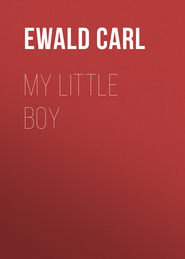По всем вопросам обращайтесь на: info@litportal.ru
(©) 2003-2024.
✖
The Queen Bee, and Other Nature Stories
Настройки чтения
Размер шрифта
Высота строк
Поля
"Shall I bend my branches a little aside so that the sun can shine better on you?" the old tree asked politely.
"Many thanks," answered the beeches. "We can grow very nicely in the shade."
And the whole summer passed by, and another summer after that, and still more summers. The beeches went on growing, and at last quite overtopped the little oak.
"Keep your leaves to yourself," cried the oak; "you overshadow me, and that is what I can't endure. I must have plenty of sunshine. Take your leaves away or I perish."
The beeches only laughed and went on growing. At last they closed together over the little oak's head, and then he died.
"That was a horrid thing to do," a great oak called out, and shook his boughs in terror.
But the old oak took his foster-children under his protection.
"It serves him right," he said. "He is paid out for his boasting. I say it, though he is my own flesh and blood. But now you must behave yourselves, little beeches, or I will give you a clout on the head."
Years went by, and the beeches went on growing, and they grew till they were tall young trees, which reached up among the branches of the old oak.
"You begin to be rather pushing," the old tree said. "You should try to grow a little broader, and stop this shooting up into the air. Just see where your branches are soaring. Bend them properly, as you see us do. How will you be able to hold out when a regular storm comes? I assure you the wind gives one's head a good shaking. My old boughs have creaked many a time; and what do you think will become of the flimsy finery that you stick up in the air?"
"Every one has his own manner of growth, and we have ours," answered the young beeches. "This is the way it's done where we come from, and we are perhaps as good as you are."
"That is not a polite way of speaking to an old tree with moss on his boughs," said the oak. "I begin to repent that I was so kind to you. If you have a spark of honourable feeling alive in you, be good enough to move your leaves a little to one side. There have been scarcely any buds on my lowest branches this year, you overshadow me so."
"I don't quite understand how that concerns us," answered the beeches. "Every one has quite enough to do to look after himself. If he is equal to his work, and has luck, it turns out well for him; if not, he must be prepared to go to the wall. That is the way of the world."
Then the oak's lowest branch died, and he began to be seriously alarmed.
"You are pretty things," he said, "if this is the way you reward me for my hospitality. When you were little I let you grow at my feet, and sheltered you against the storm. I let the sun shine on you as much as ever he would, and I treated you as if you were my own children. And in return for all this you stifle me."
"Stuff and nonsense!" said the beeches. So they put forth flowers and fruit, and when the fruit was ripe the wind shook the boughs and scattered it round far and wide.
"You are quick people like me," said the wind. "I like you for it, and am glad to do you a good turn."
And the fox rolled on the ground at the foot of the beech trees and got his fur full of the prickly fruits, and ran with them far out into the country. The bear did the same, and grinned into the bargain at the old oak while he lay and rested in the shadow of the beeches. The field-mouse was beside himself with joy over his new food, and thought that beech nuts tasted much nicer than acorns. All around new little beech trees shot up, which grew just as fast as their parents, and looked as green and as happy as if they did not know what an uneasy conscience was.
But the old oak gazed sadly out over the wood. The light-green beech leaves were peeping out everywhere, and the oaks were sighing and bewailing their distress to one another.
"They are taking our strength out of us," they said, and shook as much as the beeches around would let them. "The land is ours no longer."
One bough died after another, and the storm broke them off and cast them on the ground. The old oak had now only a few leaves left at the very top.
"The end is near," he said gravely.
By this time there were many more human beings in the land than there were before, and they made haste to hew down the oaks while there were still some remaining.
"Oak timber is better than beech timber," they said.
"At last we get a little appreciation," said the old oak, "but we have to pay for it with our lives."
Then he said to the beech trees, —
"What was I thinking of when I helped you on in your young days? What an old stupid I was! Before that, we oak trees were lords in the land; and now every year I see my brothers around me perishing in the fight against you. It will soon be all over with me, and not one of my acorns has sprouted under your shade. But before I die I should like to know the name you give to such conduct."
"That will not take long to say, old friend," answered the beeches. "We call it competition, and that is not any discovery of our own. It is competition which rules the world."
"I do not know these foreign words of yours," said the oak. "I call it mean ingratitude." And then he died.
The Dragon-Fly and the Water-lily
In among the green bushes and trees ran the brook. Tall, straight-growing rushes stood along its banks, and whispered to the wind. Out in the middle of the water floated the water-lily, with its white flower and its broad green leaves.
Generally it was quite calm on the brook. But when, now and again, it chanced that the wind took a little turn over it, there was a rustle in the rushes, and the water-lily sometimes ducked completely under the waves. Then its leaves were lifted up in the air and stood on their edges, so that the thick green stalks that came up from the very bottom of the stream found that it was all they could do to hold fast.
All day long the larva of the dragon-fly was crawling up and down the water-lily's stalk.
"Dear me, how stupid it must be to be a water-lily!" it said, and peeped up at the flower.
"You chatter as a person of your small mind might be expected to do," answered the water-lily. "It is just the very nicest thing there is."
"I don't understand that," said the larva. "I should like at this moment to tear myself away, and fly about in the air like the big, beautiful dragon-flies."
"Pooh!" said the water-lily. "That would be a funny kind of pleasure. No; to lie still on the water and dream, to bask in the sun, and now and then to be rocked up and down by the waves – there's some sense in that!"
The larva sat thinking for a minute or two.
"I have a longing for something greater," it said at last. "If I had my will, I would be a dragon-fly. I would fly on strong, stiff wings along the stream, kiss your white flower, rest a moment on your leaves, and then fly on."
"You are ambitious," answered the water-lily, "and that is stupid of you. One knows what one has, but one does not know what one may get. May I, by the way, make so bold as to ask you how you would set about becoming a dragon-fly? You don't look as if that was what you were born for. In any case you will have to grow a little prettier, you gray, ugly thing."
"Yes, that is the worst part of it," the larva answered sadly. "I don't know myself how it will come about, but I hope it will come about some time or other. That is why I crawl about down here and eat all the little creatures I can get hold of."
"Then you think you can attain to something great by feeding!" the water-lily said, with a laugh. "That would be a funny way of getting up in the world."
"Yes; but I believe it is the right way for me!" cried the dragon-fly grub earnestly.
"All day long I go on eating till I get fat and big; and one fine day, as I think, all my fat will turn into wings with gold on them, and everything else that belongs to a proper dragon-fly!"
The water-lily shook its clever white head.
"Put away your silly thoughts," it said, "and be content with your lot. You can knock about undisturbed down here among my leaves, and crawl up and down the stalk to your heart's desire. You have everything that you need, and no cares or worries – what more do you want?"
"You are of a low nature," answered the larva, "and therefore you have no sense of higher things. In spite of what you say, I wish to become a dragon-fly." And then it crawled right down to the bottom of the water to catch more creatures and stuff itself still bigger.
"I can't understand these animals," it said to itself. "They knock about from morning till night, chase one another and eat one another, and are never at peace. We flowers have more sense. Peacefully and quietly we grow up side by side, bask in the sunshine, and drink the rain, and take everything as it comes. And I am the luckiest of them all. Many a time have I been floating happily out here on the water, while the other flowers there on dry land were tormented with drought. The flowers' lot is the best; but naturally the stupid animals can't see it."
When the sun went down the dragon-fly larva was sitting on the stalk, saying nothing, with its legs drawn up under it. It had eaten ever so many little creatures, and was so big that it had a feeling as if it would burst. But all the same it was not altogether happy. It was speculating on what the water-lily had said, and it could hardly get to sleep the whole night long on account of its unquiet thoughts. All this speculating gave it a headache, for it was work which it was not used to. It had a back-ache too, and a stomach-ache. It felt just as though it was going to break in pieces, and die on the spot.
When the sky began to grow gray in the early morning it could hold out no longer.








